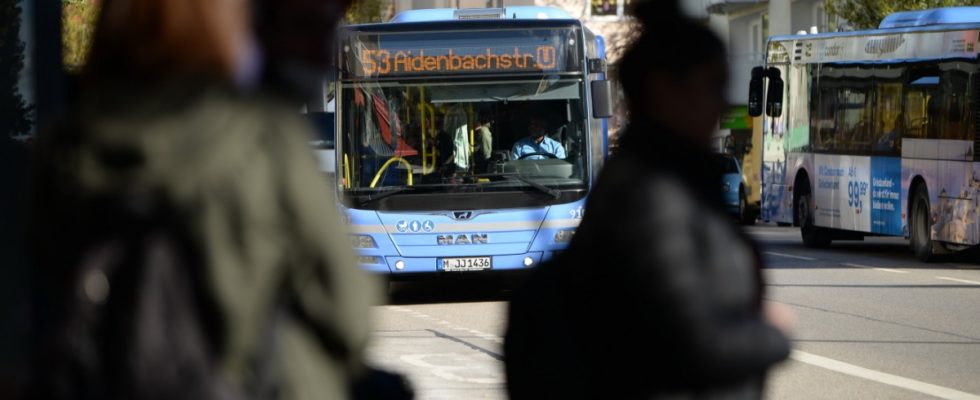“Everything is good in Germany, just the bureaucracy…” sighs Ahmad Zangello with a meaningful smile. The Syrian-born man has been in Germany since the end of 2015 and has been working as a bus driver in Munich for just over three years. During the conversation it becomes clear that it was not easy to get behind the wheel for work in this country – even though he had been transporting stationery and office supplies in trucks in Syria for years. “Driving licenses from Arab countries are not recognized here as well as those from European countries,” Zangello has learned. And before you get a license to transport people, you first need a car driving license. The costs for this are very high, especially for refugees, says Zangello: “That’s a big problem.”
The city council factions of the Greens/Pink List and SPD/Volt now want to lower certain hurdles in order to make it easier for migrants and refugees in particular to get into a job, specifically that of bus driver. To this end, they have submitted a three-part motion that encourages both the Munich Transport Company (MVG) and the Department for Labor and Economic Affairs (RAW) to make training and qualification programs more flexible and to adapt them specifically to the situation of refugees.
“We see a great opportunity for recruiting skilled workers,” says Mona Fuchs, the leader of the Green Party. Her deputy Clara Nitsche speaks of a “win-win situation” in this context: “We want to get people into good jobs and at the same time remedy a deficiency.”
There is now a shortage of skilled workers in all sectors; in Bavaria alone there are 4,000 vacancies in bus companies and 4,000 more are filled by people who are actually already retired, reported Fuchs. This shortage can also be felt in Munich in bus operations; in any case, there is a lack of staff for the desired transport turnaround, Fuchs admits: There is no need to think about improving the service here, simply maintaining it is a challenge. “Instead of condensing the rhythm, we have to expand it,” sums up the leader of the Green Party.
MVG is now looking for drivers abroad and has already installed qualification projects in the Czech Republic and Spain. However, from conversations with employees at the Bellevue di Monaco, the residential and cultural center for refugees, Fuchs and Nitsche know that there is also interest among the newcomers in earning money and a living by driving the bus. “We have a lot of inquiries,” says Andrea Hagen from the Arbeiter-Samariter-Bund (ASB), “but there are two big problems.” On the one hand, the aforementioned lack of recognition of driving licenses, and on the other hand, the fact that many people with a residence permit already work full-time and simply cannot afford further qualification. “People who already have a job can’t just quit,” says Hagen.
The aim is to remedy this situation by having the MVG examine how it can integrate the formal acquisition of a car driving license into its bus driver training. In addition, the Department of Labor and Economy, in collaboration with the MVG and the job center, should redesign the existing further training projects so that interested people can take part in them while working. In addition, the RAW should also promote the recruitment of staff domestically in parallel to the acquisition of bus drivers from abroad. “Do one thing and don’t leave the other,” says Fuchs, formulating the goal. “It would be a shame if we couldn’t leverage the potential we already have here,” says Nitsche.
In addition to the workplace and integration, the housing issue also plays a major role
In addition to language skills, good work is the second important point in the integration of all kinds of migrants, says Nitsche. The third aspect is then to “get people into apartments,” adds Andrea Hagen – and confirms Ahmad Zangello. At his new job at MVG, he has already heard that colleagues are moving away to regions where rents are cheaper. Fuchs knows that Munich’s transport companies are already starting to take action on this point: “The municipal utilities are investing heavily in company housing.”
Everything is connected to everything else, the recruitment of skilled workers on the one hand and the transport transition on the other. Mona Fuchs knows that it will take years for the measures that have now been introduced to take effect. According to the forecast, around half of those employed in bus companies in this country will retire by 2030. The need for young people is there.

